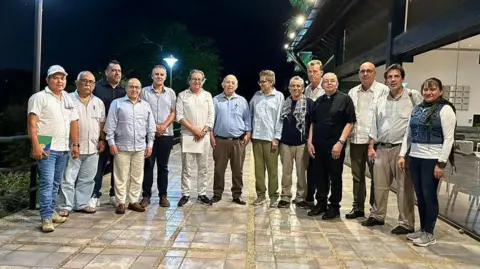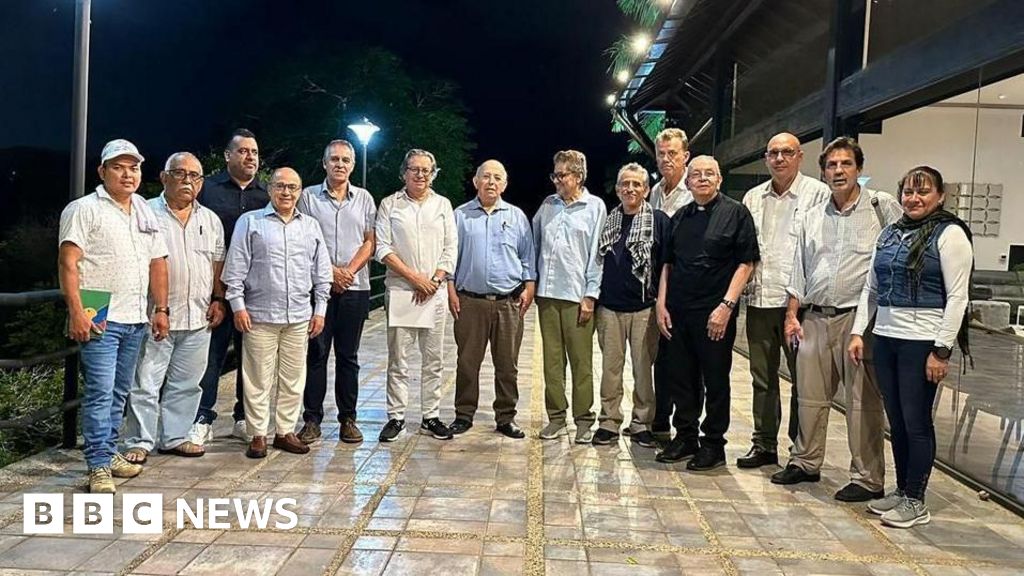Vanessa Buschschlüter,BBC News
 Twitter/@BrunoRguezP
Twitter/@BrunoRguezPColombia’s government and a group of left-wing rebels have said they will begin formal peace talks later this month.
The group, which calls itself Second Marquetalia, split off from the Revolutionary Armed Forces of Colombia (Farc) after the latter signed a peace deal in 2016.
The talks are part of President Gustavo Petro’s plan to bring “total peace” to Colombia.
While negotiations with other rebel groups have proved rocky, President Petro has insisted that they are the only way to ensure peace in the conflict-wracked Andean country.
The Second Marquetalia is one of the main dissident groups to emerge after most of the Farc rebels had laid down their arms in 2016.
Thought to be made up of around 1,000 fighters, the group engages in cocaine smuggling and kidnapping for ransom, and is known for attacking Colombia’s security forces.
Last month, the Colombian military dismantled a clandestine “factory” where it said members of the Second Marquetalia loaded drones with explosives they planned to detonate above police stations and military bases.
While it is most active on Colombia’s border with Venezuela, it also has units operating in other parts of the country.
Its leader, whose nom de guerre is Iván Márquez, was one of the main negotiators of the 2016 peace agreement between the Colombian government and the Farc.
But, three years after the agreement was signed, he appeared in a video with other former Farc leaders calling on his followers to take up arms again.
He accused the Colombian state of “betraying” the peace agreement, saying that it was “indifferent” to the hundreds of social leaders and former rebels killed in the years after the peace deal was signed.
But Mr Márquez’s signature appears in the document enshrining the agreement between the government and the Second Marquetalia to meet in Venezuela’s capital Caracas beginning on 24 June for talks scheduled to begin the following day.
The leadership of the group itself has been decimated since it was founded in 2019
In 2021, Jesús Santrich, Henry Castellanos Garzón – who is better known under his alias of Romaña – and Hernán Darío Velásquez, nicknamed El Paisa, were all killed.
The main negotiator for the dissident rebels is not its leader Mr Márquez but a man known as Walter Mendoza, who joined the Farc in the 1970s.
He is infamous for creating an elite corp of rebels who specialised in complex operations.
Armando Novoa will lead the government’s side.
Cuba, Norway and Venezuela will act as guarantors
The rebels are thought to have been operating from a base in the border area between the two countries.

